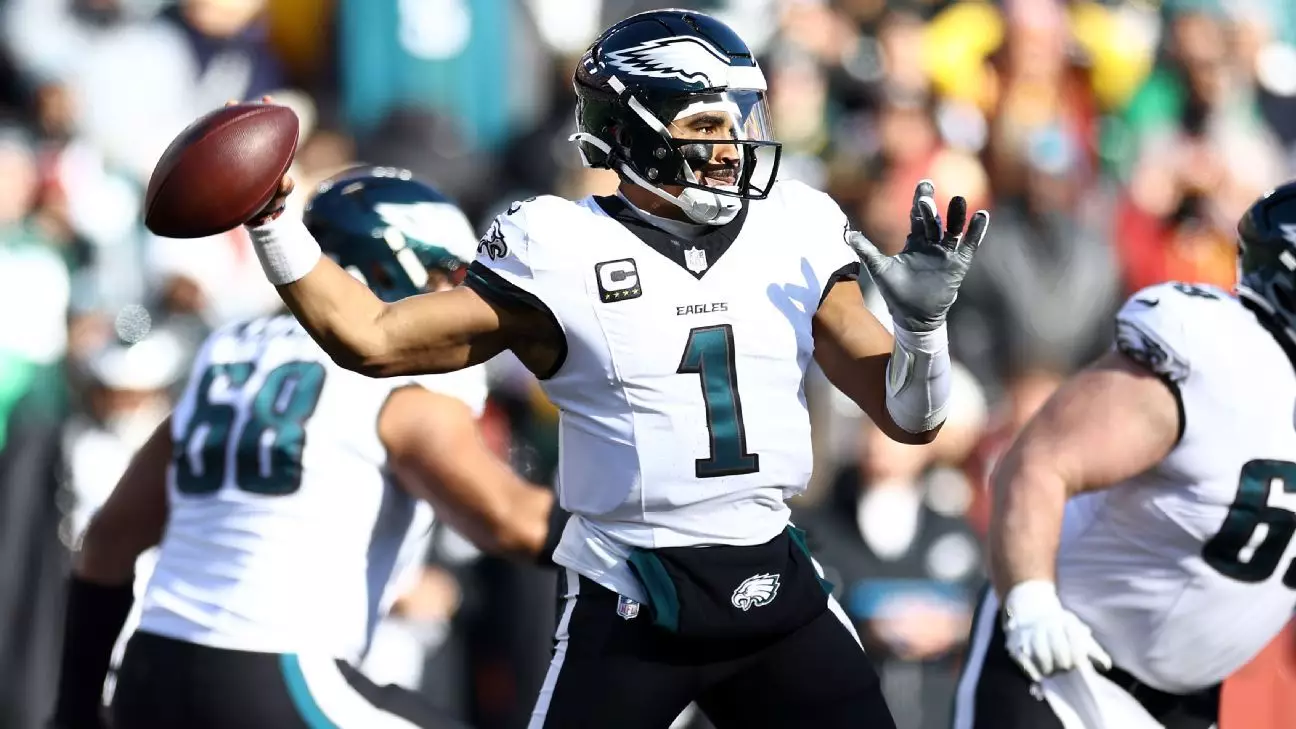The Philadelphia Eagles experienced a disheartening loss to the Washington Commanders, resulting in a 36-33 defeat that heavily impacted their ambitions for the NFC playoffs. Injuries to key players and a slew of errors tragically marred what could have been a triumphant outing. This article dives deeply into the implications of this loss, the state of the team, and potential trajectories moving forward.
The game began with promising energy, but that was soon overshadowed by the unfortunate injury of starting quarterback Jalen Hurts. His injury, a concussion suffered in a moment of hard contact with linebacker Frankie Luvu, forced him to exit in the first quarter. The rapid shift in quarterback talent is an undeniable blow to the Eagles’ game strategy. Hurts was not just a playmaker; he was the linchpin around whom the team’s offense revolved.
Kenny Pickett, once the Pittsburgh Steelers quarterback, stepped in to take over but not without his challenges. His performance yielded mixed results—finishing 14-of-24 for 143 yards, with one touchdown but also throwing an interception. Soon after his participation in the game, it was revealed that Pickett suffered a rib injury, thus compounding the Eagles’ woes at the quarterback position. This situation raises questions about the team’s preparedness for adversity in its roster and how injuries have trended in this season’s narrative.
Despite the injuries, the Eagles had opportunities to seize control of the game. Significant plays, including A.J. Brown’s robust performance—eight catches for 97 yards—demonstrated potential against the Commanders’ defense. Brown’s confidence reflects not only his skill but also serves as an indication of how strategic execution can impact the outcome of games. However, the inability to convert favorable situations into touchdowns was glaring.
The Eagles boasted a noteworthy second-half effort. After establishing a lead with field goals, they appeared poised to secure a win. Yet, critical plays, such as DeVonta Smith’s uncharacteristic drop late in the game and an overturned coverage leading to a 49-yard touchdown for Washington, thwarted their aspirations. The team’s collective failure to capitalize on scoring chances ultimately highlighted a lack of discipline and focus—a disheartening realization for Coach Nick Sirianni.
As the Eagles’ offensive side faltered, the defense also exhibited alarming lapses that allowed Washington to gain momentum. Particularly, the ejection of safety C.J. Gardner-Johnson for unsportsmanlike conduct was a moment that exacerbated the defensive weaknesses. The secondary was already under pressure, and being forced into a less cohesive unit further allowed Washington to make late-game advances.
Moreover, the Eagles’ historical trend of solid defense took a hit as they became only the second team in the Super Bowl era to score over 30 points, amass over 200 rushing yards, force five turnovers, and still walk away with a loss. Such statistics are not just troubling; they illuminate underlying issues within team dynamics and overall game philosophy. The inability to secure a victory despite substantial advantages poses significant questions regarding game management and the ability to handle high-stress situations.
The immediate aftermath of such a loss presents a challenging path ahead for the Eagles. With their playoff prospects now hanging precariously in balance, the team mustshift their focus to upcoming games against formidable opponents like the Dallas Cowboys and New York Giants. The loss has reduced their playoff chances—shifting from a previously comfortable outlook to one now marked by uncertainty.
The resolve and mentality of the players will be crucial in navigating this tumultuous period. As running back Saquon Barkley articulated, maintaining team confidence and a collective mindset becomes essential. The Eagles cannot afford to let a single poorly executed game define their season. Instead, they have to harness their potential while learning from their mistakes if they hope to succeed in the final stretch.
The loss against the Washington Commanders represents far more than just a dip in the standings. It is a reflective learning moment that could act as a catalyst for growth. The Eagles will need to dig deep, refine their strategies, and ultimately prove their resilience if they are to emerge stronger and reclaim their position as NFC contenders.

Leave a Reply